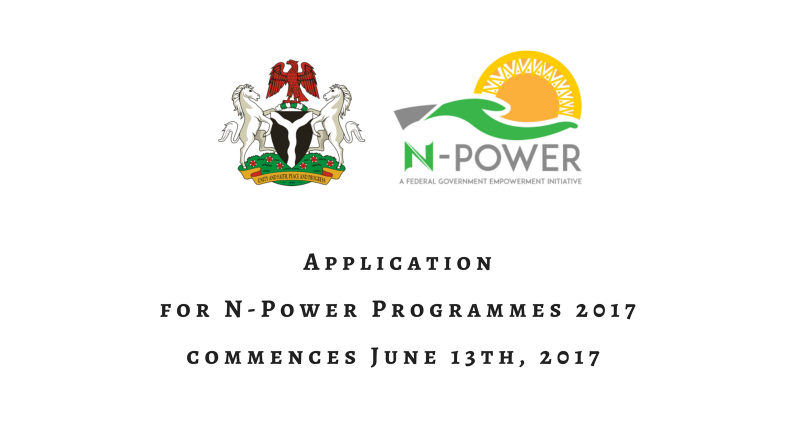Mr Afolabi Imoukhuede, the Senior Special Assistant to the President on Job Creation and Youth Empowerment, on Tuesday said that the N-Power non-graduate scheme starting in September would build the competency skills of Nigerian youths.
In an interview with the News Agency of Nigeria (NAN) he said that the programme was called non-graduate because its minimum entry level is the Senior Secondary School Certificate but did not bar graduates from participating.
According to him, the officials were aware that quite a few graduates had applied for the programme noting that they would not be discriminated against for the fact that they were graduates.
Cue in audio
“For the non-graduate programme what we have designed is a skills-to-enterprise or skills-to-job programme.
“So it is designed to really build their competences that are relevant to the respective industries.
“For our roll out plan we are focusing primarily on the construction industry and the automobile industry, that is, for the category that is under vocational.
“We also have some that are under the technology component where we have repair and maintenance for our laptops and phones and what have you.
“We have the software development and then we have the creative arts where we have got the graphic animation and the likes.’’
Cue out audio
According to Imoukhuede under the construction there are six categories: carpentry, plumbing, electrical, masonry, painting and decorating, and welding and fabrication while the seventh area is automobile.
“What we have done is basically to work with the National Automotive Design and Development Council and for the construction we are working with the Council of Registered Builders of Nigeria.
“We are working with these two oversight councils, they then are providing for us their training partners and accredited partners across Nigeria.
“And we would engage the training partners through the council.
“The system is such that it is really a one-year programme; but it is three months intensive training at the centres and then nine months apprenticeship with the employers,’’ he said.
The Presidential aide noted that for the technology beat, the Ministry of Budget and National Planning was completing the service-procurement consultancy processes.
He expressed the hope that the ministry should be able to take submissions to the Federal Executive Council (FEC) and the NBTE for approval.
Imoukhuede said that it was observed while dealing with both institutes that a lot of their partners were actually employer partners.
“In the automobile for example we have the Peugeot Automobile of Nigeria (PAN).
“Whilst they have capacity for training they are also an employer-partner, so they can absorb them for internship even after they finish from the training school.
“Where that is not the case in few cases where the training provider is not necessarily an employer partner, not an automobile shop or a construction workshop they will network with employers to leverage the employer network to then deploy them for apprenticeship.’’
He observed that while in the training centres, and also during their extended apprenticeship, N-Power would “commit to giving them what we call transportation subsidy stipends’’.
He explained that by the budget the stipend was N10,000 monthly but added that the steering committee for the programme was making a case to increase it to N15,000 which had yet to be approved.
He stated that the same increment was sought for the graduate volunteers from the former N23,000 to N30,000 due to the economic recession.
“We are making a case but it has not been approved but we commit to paying them stipends for the one year’’, adding that employers would be expected to give them additional stipends since they would be adding value to their businesses.
“The reason we brought the industry partners very close is that we believe that if they are contributors to the quality of the training and they have been partners in the training, then they will not complain about the training.
“So they must therefore train them to the level of the output that will be good for the purpose for you to employ them, engage them to be your sub-contractors.’’
He said that the industry partners determined both the curriculum and the training format.
“The goal is that post the 12 months, some of them will naturally form clusters and become sub-contractors and of course self-employed, while others will be absorbed in full time employment with the partners.
“What is then interesting and we have done differently is that as long as we are working with partners across the varying partners, they do things that are standardized,’’ he said.
He noted that the training manual “is standardized’’ as the industry partners would provide their own industry-based curriculum and manuals that had been approved by the NBTE, NABTEB and other regulators.
NAN reports that besides the 50,000 non-graduate volunteers, 300,000 graduates were being selected from over 1.5 million applicants to complete the graduate scheme to 500,000.
The 200,000 unemployed graduates were already deployed across the three components of N-teach, N-health and N-agro in the 36 states and FCT.

